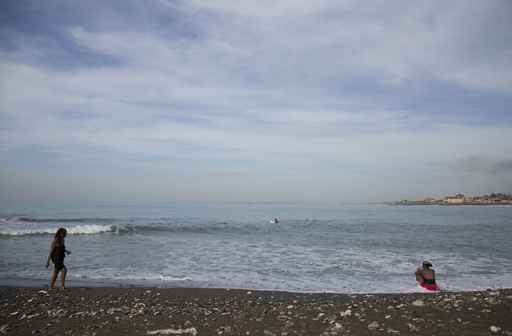SAN JUAN, Puerto Rico (AP) — Tense deliberations over how and if to allow deep sea mining unfolded Monday in Jamaica as at least one company threatened to apply for permission before rules and regulations are in place.
More than two dozen countries have called for a ban, pause or moratorium on deep sea mining — including most recently Peru and Greece — as the U.N. International Seabed Authority resumed talks over a proposed mining code after last meeting in March.
“We have two very busy weeks ahead of us,” said Olav Myklebust, the authority’s council president as some countries warned that the proposed regulator framework has significant gaps and does not include some of their proposals.
The Jamaica-based authority, which is the global custodian for deep waters that don’t fall under a country’s jurisdiction, has granted 31 mining exploration contracts but has not authorized any exploitation as the debate continues.
Much of the ongoing exploration is centered in the Clarion-Clipperton Fracture Zone, which covers 1.7 million square miles (4.5 million square kilometers) between Hawaii and Mexico. It is occurring at depths ranging from 13,000 to 19,000 feet (4,000 to 6,000 meters).
Scientists have said that minerals at those depths take millions of years to form, and that mining them could unleash noise, light and suffocating dust storms.
“The deep ocean sustains crucial processes that make the entire planet habitable, from driving ocean currents that regulate our weather to storing carbon and buffering our planet against the impacts of climate change,” said Sofia Tsenikli with the Deep Sea Conservation Coalition ahead of the meeting.
Those who support deep sea mining argue that it is cheaper and has less of an impact than land mining. Among those pushing for exploitation is The Metals Company, a Canadian business that is largely expected to be the first to seek permission to start mining.
The debate over deep sea mining comes amid growing demand for precious metals including cobalt, nickel and copper that grow in the ocean’s bowels and are used in electric car batteries and other green technology.
“There is a lot of work that remains to be done,” said France’s representative, Olivier Guyonvarch. of the proposed mining code.
Elza Moreira Marcelino de Castro, the representative for Brazil, said the draft needs more clarity about issues including liability and additional details about a proposed environmental compensation fund.
The council is scheduled to debate the issue for two weeks and will then hold an assembly to elect a secretary general.
Source: post





